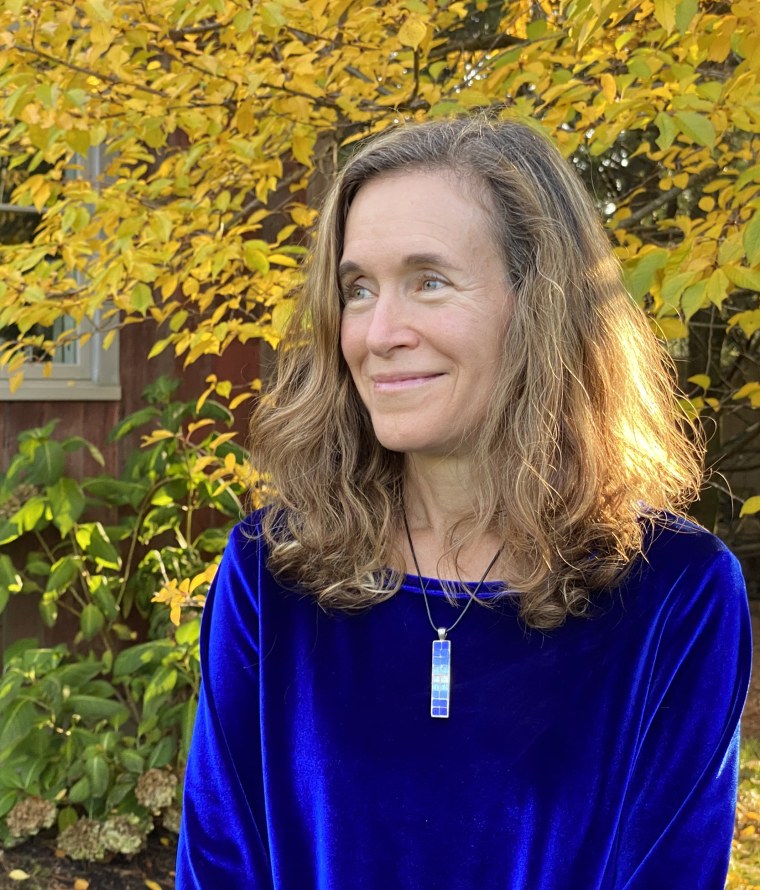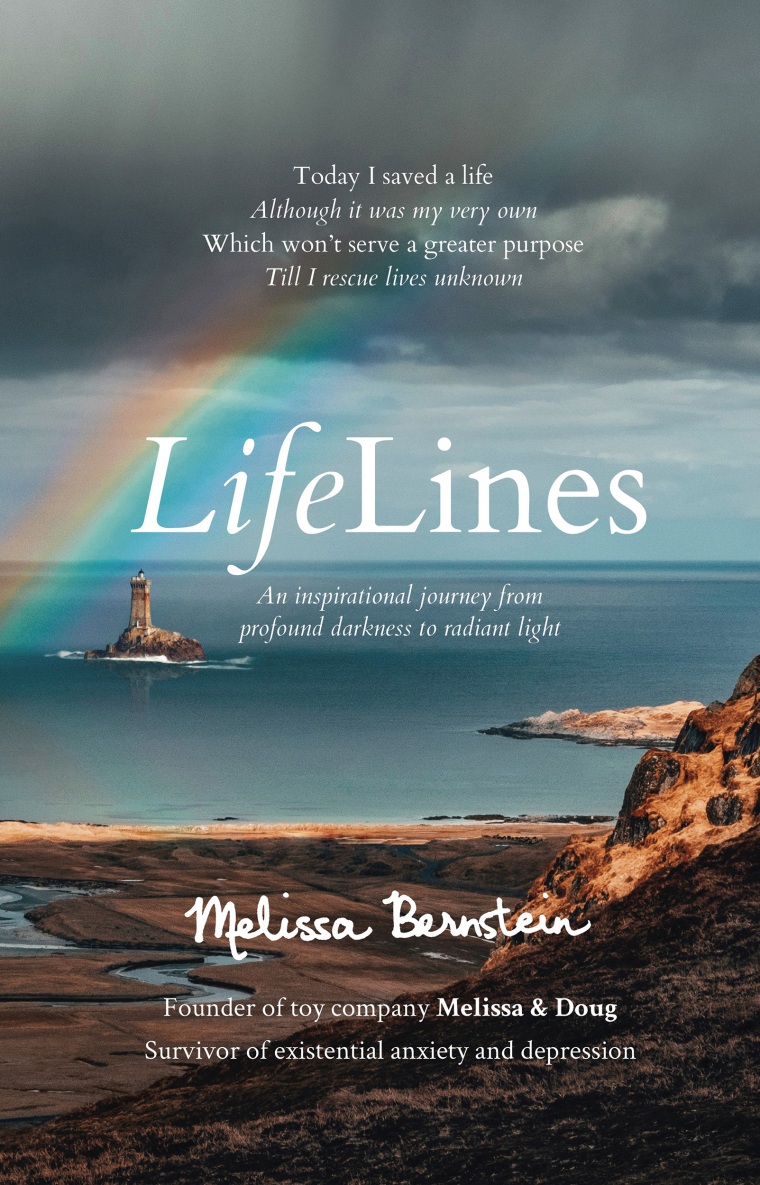This story discusses suicide. If you or someone you know is at risk of suicide please call the U.S. National Suicide Prevention Lifeline at 800-273-8255, text HOME to 741741 or go to SpeakingOfSuicide.com/resources for additional resources.
From the outside, Melissa Bernstein, co-founder of Melissa & Doug with her husband, looks like the picture of success. She heads a beloved toy company based in Connecticut, has a supportive and loving husband and six children.
At the same time, Bernstein was struggling with her mental health, mostly in secret. In her new memoir, "LifeLines: An Inspirational Journey from Profound Darkness to Radiant Light," she shares her lifelong experiences with “existential depression,” starting therapy and wanting to help others.
“Everybody believed that I had it all in the conventional, societal sense of success and that meant I was perfect. I have spent 50 years trying to live up to that model of perfection and failing,” she told TODAY. “The book was my bid to say this is who I am because I had hidden myself in the shadows for my whole life.”

While she’s sharing her experiences with mental illness and helping to normalize it, she also founded an online community called LifeLines to help others feel less isolated.
“Once I healed myself, I had such a profound need to help heal others who were also in that despair,” she said. “LifeLines … was born out of three really deep core tenets. The first being: You are not alone. It can sound really cliche until you read the 10,000 letters I’ve received.”
'Crisis of powerlessness'
Throughout her life, Bernstein faced “existential dread.” For much of it, she didn’t realize that what she was experiencing was mental illness.
“For the first 25 years of my life, it was basically like a demon in my head, telling me that life was futile and I should end it all,” she said. “The only way I could survive was to repress it, deny it and disassociate from every single thing I felt and try my best to create this persona and live my life. So, I was in utter denial of everything I experienced and felt.”
When she met husband and company co-founder, Doug, in college, she was in the grips of an eating disorder. She weighed about 82 pounds at 19 years old.
“I really just covered up the actual not eating and didn't deal with the emotions underlying it. Because an eating disorder is just a symptom of a crisis of powerlessness,” Bernstein said. “I didn't just control my eating. I controlled every single thing I was able to control. I controlled my eating. I controlled my performance. I controlled my looks. I controlled my money. I controlled my exercise."
At first she was “so frail” she faltered walking up steps. But Doug, who she says has helped her numerous times when she struggled, encouraged her to eat. Because she was a “people pleaser” she ate to make him happy. But it had an effect she never expected.
“When I started eating, I actually started feeling better. And I think that voice quieted a bit and I was able to continue on,” she said. “But I hadn’t dealt with the underlying powerlessness ... It was just recently that I was able to handle my lack of control slightly better.”

While she struggled in college, starting their namesake toy company with Doug often gave her something to devote her energy to. Having a creative outlet helped her cope, but some of the despair, anxiety and depression never left. Several years ago, she was reading the Viktor Frankl book, “Man’s Search for Meaning,” where the Holocaust survivor discusses existential despair and logotherapy, a type of therapy he designed to help people find meaning in life. The more she read, the more she recognized herself.
“I had never heard the word logotherapy or existential and when I looked it up, I realized with profound, I call it shelation — shock and realization — that I had actually been afflicted with existential despair my entire life since the moment I was born,” she explained.
Finding support
Four years ago, she started going to therapy, something that a younger Bernstein might have avoided.
“The idea of admitting I was imperfect, flawed and needed help was inconceivable,” she said. “Seeking help was a weakness, not a strength.”
Being open about mental health and therapy also helps her in various aspects of her life. She finds that being honest about how tired or sad she is or sometimes saying "no" improves her relationships. But also strangers notice and feel like they, too, can be more open in their lives.
"I'm just trying to prove that you can be yourself and come out exactly as you are, and it's OK. It's been a lifelong lesson, the hardest one for me to learn," she said. "I have seen now that I have done it, it's really given so many others the permission to do it themselves."
Bernstein wanted to also encourage others to receive support for their mental health, which is why she started LifeLines. Melissa & Doug sponsors it so it’s a free resource for people. Already, she's seen the impact it makes in others' lives.
“Everybody writes me and says, ‘I feel so alone.’ And that's how I felt my whole life. I felt like no one would ever know or understand or accept the real me and our community aims to welcome every single person, however they are, with open arms,” she said. “To really show them that they're OK.”